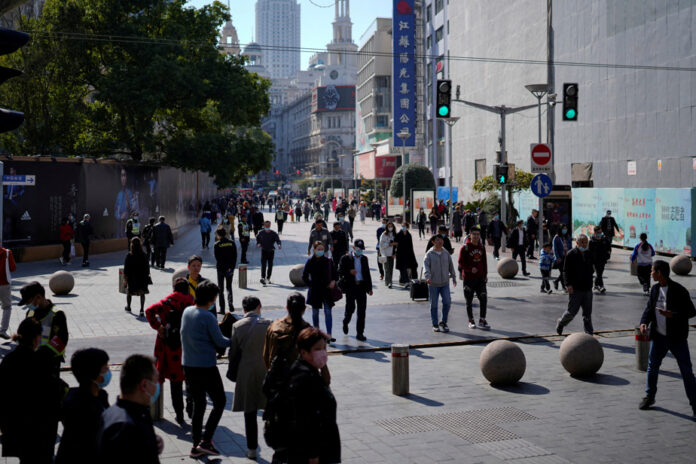(Beijing) ‘Facts will prove them wrong’: China on Wednesday acknowledged economic ‘difficulties’ but castigated pessimism from those in the West who doubt the Asian giant’s ability to sustain global growth.
These comments come after the publication in recent days of disappointing economic figures for the second planetary economy, which led to numerous articles in the press and a fall in world stock markets.
US President Joe Biden also deemed last week that China, which the United States makes a rival, was “a ticking time bomb”, citing in particular its economic slowdown.
“China’s (post-COVID-19) economic recovery will have to ride the waves and experience a tortuous progress, inevitably with difficulties and problems,” said Wang Wenbin, a spokesperson for the Chinese Ministry of Foreign Affairs, on Wednesday.
“But we have never backed down from problems, we have taken proactive steps to address them, and results have been or are being seen,” he said during a regular press briefing. .
Asked about Western critics deeming China’s economic slowdown incompatible with its role as engine for the global economy, the spokesperson denounced their pessimism.
“A small number of Western politicians and media are exaggerating and hyping up the periodic difficulties of China’s post-epidemic economic recovery. In the end, the facts will prove them wrong,” Wang said.
However, several lights are orange.
Retail sales, a key indicator of consumption, rose 2.5% year on year in July, the National Bureau of Statistics (NBS) said on Tuesday. A level much lower than in April (18.4%) and below analysts’ expectations.
Unemployment among 16-24 year olds is also at record highs, at over 20% according to official figures.
Another sign that the recovery is running out of steam, loans to households reached their lowest level since 2009 last month. Industrial production also slowed in July (3.7% over one year), after 4.4% a month earlier.
China is penalized by the setbacks of several highly indebted promoters, by waning consumer confidence and the global economic slowdown, which is weighing on demand for Chinese goods and therefore on activity.
But the government is still betting on its growth target of “around 5%” for 2023.
From the first to the second quarter of 2023, China’s GDP grew by only 0.8%.
Spokesman Wang Wenbin, however, preferred to point out on Wednesday that the Chinese economy grew by 5.5% over the first half of the year.
“That’s three percentage points higher than the US growth rate,” he said.
He also welcomed the increase in investment in scientific research and the extension of Chinese photovoltaic capacities.
According to the International Monetary Fund (IMF), he said, China’s economy is expected to grow 5.2 percent this year, contributing one-third to global economic growth.
“We have the confidence, the conditions and the ability to achieve our annual socio-economic development goals, to move the great ship of China’s economy forward into a larger future, and to continue to be a driving force for recovery and of global economic growth,” he said.
The Tokyo Stock Exchange ended lower on Wednesday and Hong Kong also fell, weighed down like Wall Street and European markets the day before by concerns about the health of the Chinese economy.















